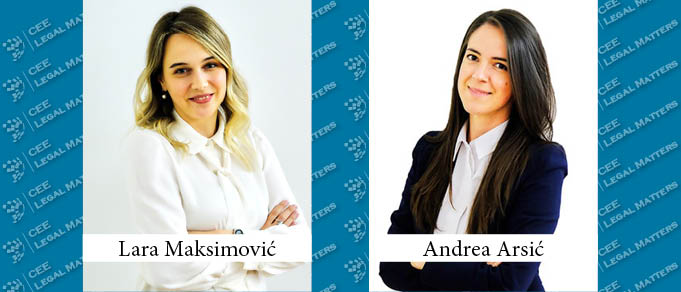At the end of 2021, there was a public debate on the Draft Law on Internship, proposed by the Ministry of Labour, Employment, Veteran and Social Affairs (“the Draft”), while the final proposal is pending.
What does internship imply?
The Draft regulates the issue of time-limited work engagement organized by employer, that enables an intern to obtain practical experience, specific knowledge and skills within an occupation, as well as the manner of obtaining such experience, knowledge and skills through internship, and rights, obligations and responsibilities of both employers and interns.
In accordance with the above, the Draft defines internship as activities of intern aimed at obtaining practical experience, specific knowledge and relevant skills for working within a particular occupation, for the purpose of improving employability and/or creating possibilities for employment and self-employment, whereas the Draft also stipulates what is not considered as internship (e.g. apprenticeship, volunteering etc.).
Internship agreement
The Draft sets out that internship may only be established on the basis of previously concluded written internship agreement between the intern and the employer. The respective agreement does not establish the employment relation, it can be concluded only once with the same person, and it is concluded for a period necessary to achieve the goals of internship that may not exceed six months.
Upon completed internship, the employer shall enact to every intern an internship certificate, whose form and content are also specified by the Draft.
Intern and employer
By virtue of the Draft, an intern shall mean any natural person up to 30 years of age, who works as intern with an employer for the purpose of obtaining practical experience, specific knowledge and relevant skills for work within a specific occupation.
Therefore, internship may also be done by an unemployed person, whether registered in unemployment records or not, provided that such person has minimum 15 years of age and completed elementary school, yet does not possess working experience in the occupation that the internship is performed within. In other words, a minor may also be an intern given that the additional requirements specified by the Draft are met.
On the other hand, the Draft defines employer as a legal person, entrepreneur and representative office or branch of a foreign legal person (registered in the territory of the Republic of Serbia) where internship is performed and which provides the conditions necessary for provision of practical experience, specific knowledge and relevant skills through internship, whereby the Draft further specifies the number of interns that an employer may engage, which depends on the number of its employees.
The Republic of Serbia, autonomous province, local self-government units and public services may also act as employers in terms of the Draft.
Employer’s obligations
The employer organizing internship shall be obliged, inter alia, to:
- publish an announcement for internship;
- provide the intern with tasks and means for work;
- respect and protect the intern’s dignity;
- ensure safe and healthy working environment;
- file an application for mandatory social insurance within a prescribed period, no later than the commencement of internship;
- pay compensation; and
- pay contributions for pension, disability and health insurance in accordance with the law.
Intern’s rights
For the purpose of protecting intern’s rights and interests, the Draft stipulates that an intern may not work more than 40 hours a week, while internship can imply full-time or part-time engagement. In relation thereto, overtime work and redistribution of working hours shall are not allowed, and the intern may not work on holidays that are non-working days under the law.
One of the specifics of this working engagement is the compensation that intern is entitled to during the internship, which amounts to at least 2/3 of the minimum salary increased by the tax and contributions that the employer is obliged to pay.
Protection of rights
An intern who deems that his/her rights from the internship agreement have been violated by the employer may, within 15 days after the delivery of decision that violates the right or after learning about the violation, request from the employer the exercising of such right. If the employer fails to fulfil such request within the same deadline (after the delivery of intern’s request thereof), the intern may within an additional 15-day period request the protection of the violated right before a competent court.
Criticism of the Draft
Although the Draft contains the provisions stipulating rights and obligations of employers and interns, as well as court protection in relation thereto, during the public debate on the Draft it was reiterated that these provisions were not sufficiently detailed and comprehensive, which leaves space for different abuses. Criticism was focused on the definition of intern (since it only covers the persons educated for a certain profile, which leaves out the persons who wish to acquire relevant qualifications for other occupation), as well as provisions stipulating that compensation for internship is less than the minimum salary etc.
Therefore, it remains to be seen whether the mentioned and other deficiencies of the Draft will be eliminated by the final proposal of this piece of regulation.
This article is to be considered as exclusively informative, with no intention to provide legal advice. If you should need additional information, please contact us directly.
By Lara Maksimovic, Senior Associate, and Andrea Arsic, Associate, PR Legal


